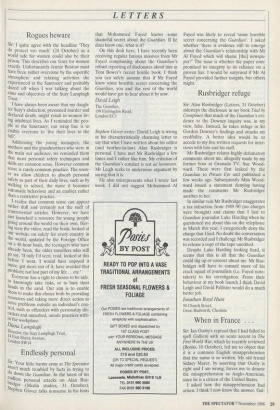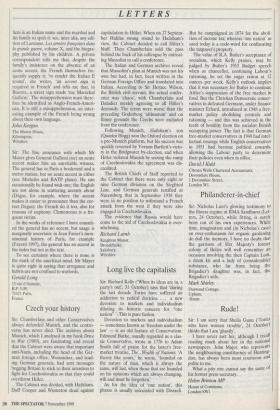When in France . . .
Sir: Ian Ousby's reproof that I had failed to spell Gallieni with an acute accent in The First World War, which he recently reviewed (Books, 10 October), led me to object that it is a common English misapprehension that the name is so written. My old friend Sidney Mayer, by asserting that Ousby is right and I am wrong, forces me to denote the misapprehension as Anglo-American, since he is a citizen of the United States.
I asked how the misapprehension had arisen. I think I now know the answer. Gal-
LETTERS
lieni is an Italian name and the marshal and his family so spelt it: see, inter alia, any edi- tion of Larousse, Les armies frangaises dans la grande guerre, volume X, and the biogra- phy published by his children. A private correspondent tells me that, despite the family's insistence on the absence of an acute accent, the French themselves fre- quently supply it: `to render the Italian E sound', she writes, 'an accent aigu is required in French' and tells me that, in Biarritz, a street sign reads 'rue Marechal Garnett?. The misapprehension must there- fore be identified as Anglo-French-Ameri- can. It is still a misapprehension, an inter- esting example of the French being wrong about their own language.
John Keegan
The Manor House, Kilmington, Wiltshire



















































































 Previous page
Previous page